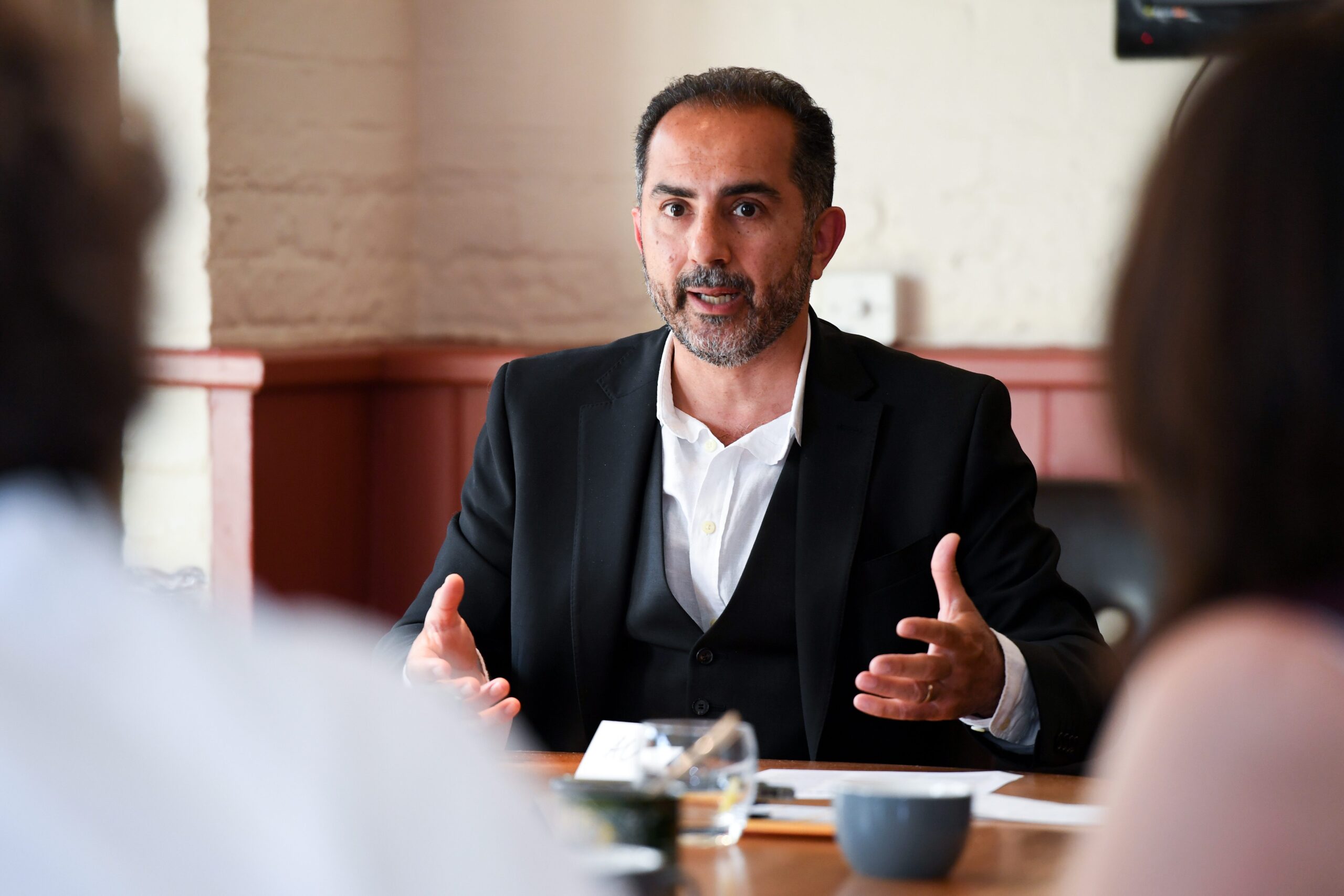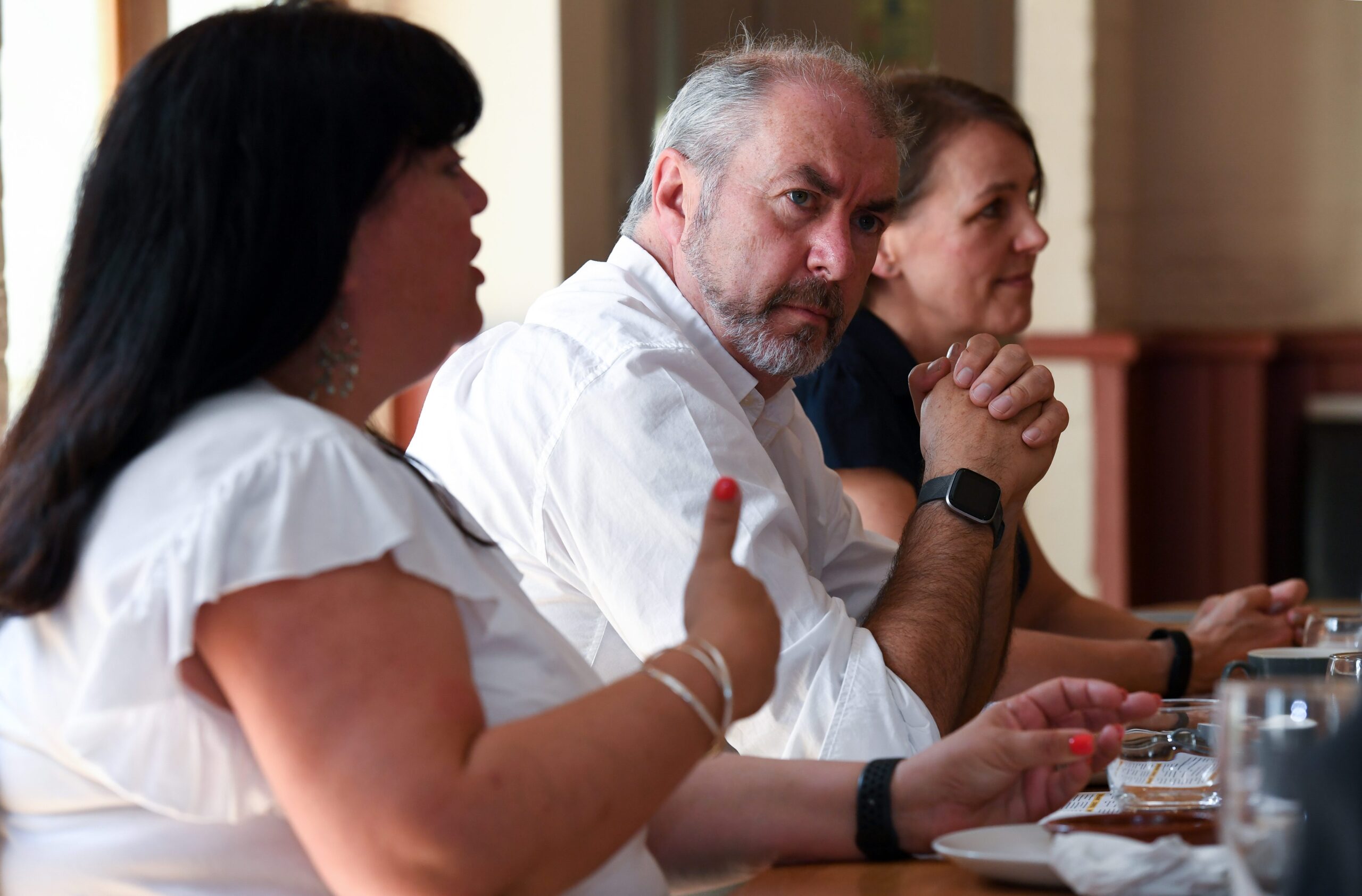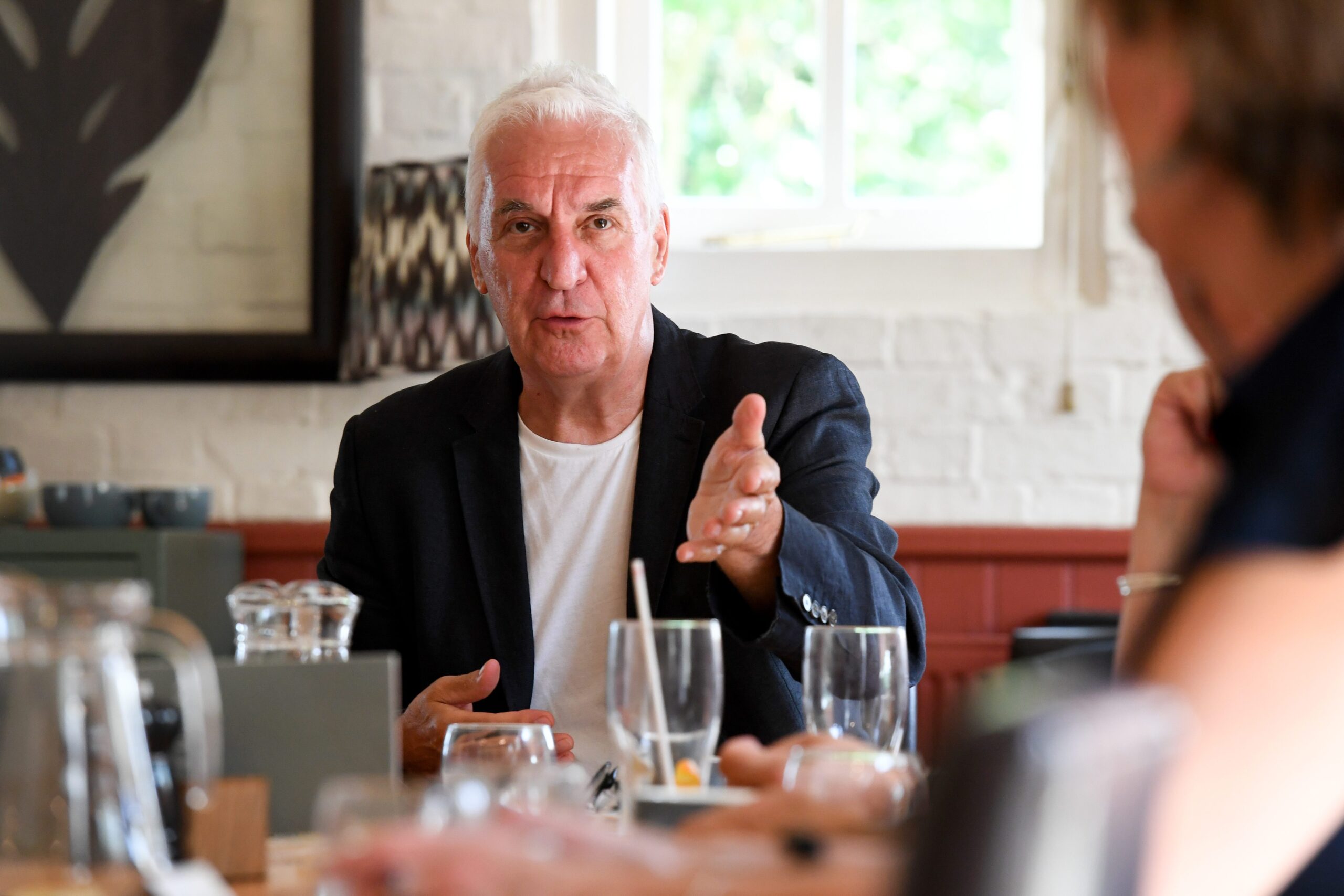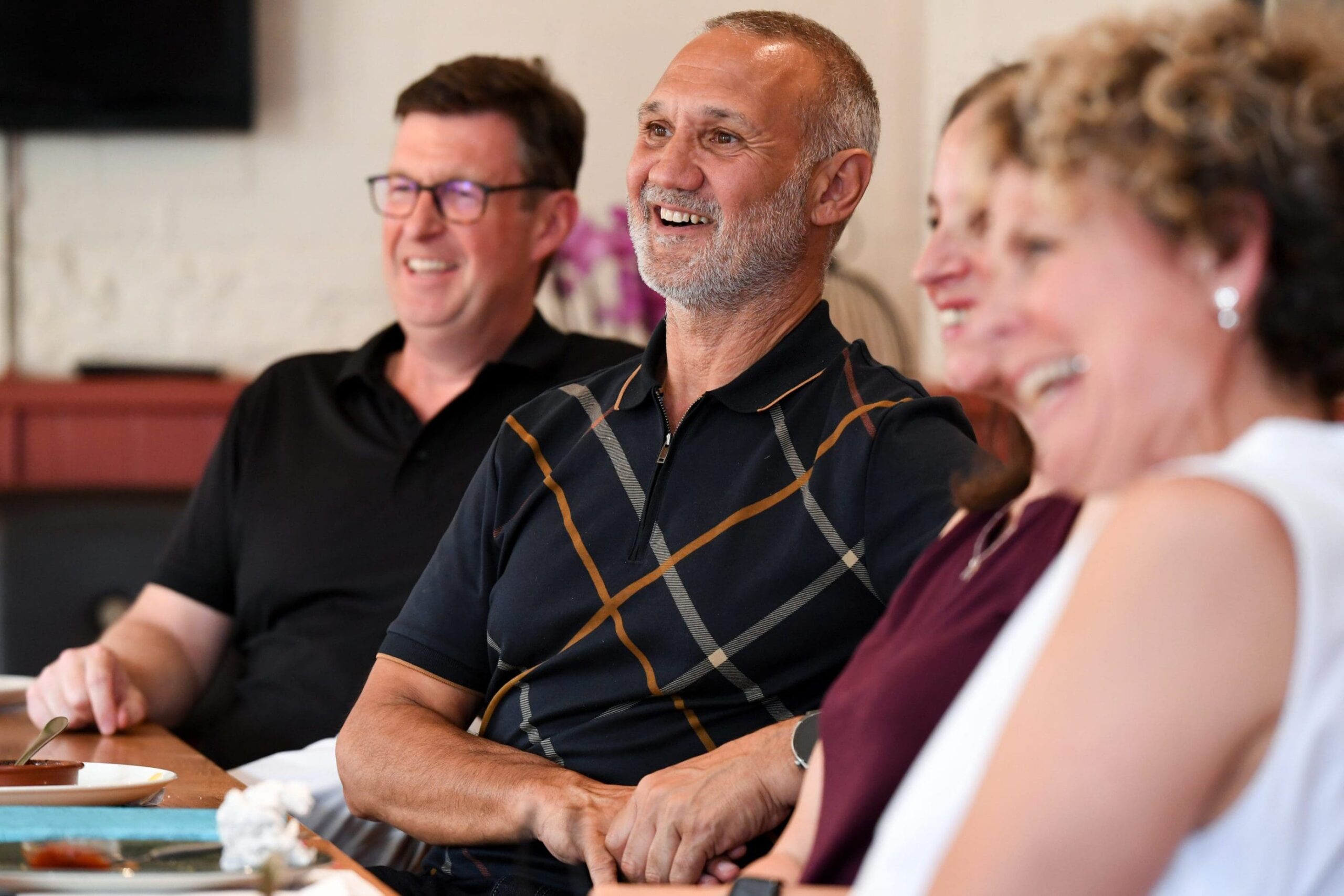The theme of the latest gathering for The Lunch – established by Yellowyoyo to bring thought leaders together to share ideas and experiences – was ‘how best to inspire your talent in 2023’.
Opening the event, Bryan Wright from Yellowyoyo explained that whilst researching the topic, a list of four things leaders should consider had emerged: the changing workplace, employee well-being, leading a diverse and inclusive culture, and engaging with tech and talent.
Al Salehian from Yellowyoyo added purpose to the list, saying:
“Young people want to work for businesses and individuals with purpose and alongside those who they feel are contributing. They have an opinion on what’s happening in the world and they will readily go and work for someone else if they don’t think their company is doing that. They will happily move sideways because the place they are in doesn’t have the right feel. It’s not necessarily about the money.”
Bryan Wright said:
“The Lunch helps us understand what leaders are going through and how we can help them. The truth is that there is no course you can attend to become an MD or a CEO, you can’t learn to be one – but at the same time you have to know how to deal with all the issues that are put before you. This is a unique era of social disruption, mental health challenges, the cost-of-living crisis, and somehow we’ve got to tackle all of those and still lead our businesses.”
Al, Bryan, Amanda and Elise from Yellowyoyo were joined by Sarah Sweet-Rowley from Autism Early Support, Gamiel Yafai from Diversity Marketplace, Michelle Theuma from Onyx Recruitment, Nigel Adams from Ad Valorem, Mark Ormerod from Leap and Frazer Arnott from All Things Business.

The discussion began with Nigel Adams agreeing with Al’s addition of purpose to the list, as in his opinion the sense of purpose surrounding work has changed over the past few years.
“When I got my first job all I wanted was enough money to live on and to go out at the weekend. Now, with 17 and 18-year-olds, one of the first questions they ask at a job interview is what the career progression is. We have to help them sketch out a potential career plan, it may or may not be what happens, but they want to know what the progression will be.”
Amanda Wright spoke about how research has shown that trust is at the heart of company culture and that it’s imperative for companies to put their ‘money where their mouth is’ and to show up, in terms of local social responsibility. “More than ever, employees need to trust their employer – they often don’t trust politicians and may not have guidance from family or role models. It’ll be a dealbreaker, certainly for Gen Zs and Gen Alphas of the future.”
Sarah Sweet-Rowley said:
“Trust is easier in the voluntary sector, because of the work we do, but we recognise that in terms of recruitment, we can’t compete with the private sector with what we can offer. But if we invest in people and let them be themselves, see who they are and what they bring, and if we listen to them and enable them to be their authentic selves, they will be the people we manage to hold onto because they can flourish.”
Michelle Theuma suggested that employers could take a different approach to recruitment and actively consider what an individual might have offer.
“Too many employers approach recruitment from the point of view of ‘who will fit into our team’, whereas if you consider what the individual has to offer and think about how they could change your business, that’s where recruitment becomes exciting. It’s not all about money now, it’s very much about culture.”
The complexities of employment culture then drew the discussion to how small businesses will cope with everything that is expected of them.

Nigel Adams said:
“The majority of CEOs we talk to say that what with everything they’re having to deal with – the pandemic, Brexit, regulations, cyber crime – staffing is one of the single biggest issues because it is so difficult to navigate. I like to think we all try really hard to be inclusive, but there comes a point where it will defeat some businesses. I think it could well kill some small businesses because you wonder if people going to think ‘I’m just going to work on my own because it’s easier’.”
Mark Ormerod added:
“I do wonder how small businesses keep pace in this ever-changing world of new policy and regulation. People can and do say the wrong things, without any intention of offending, so there is a real need for continuous learning and education.”
Gamiel Yafai said:
“The fact is, organisations can create complex solutions or they can make things simple. Take something like gender ID and people worrying about pronouns – just use a person’s name. It should be simple to just do the right thing for the right reasons. The culture of a business can be defined as the way an organisation makes you feel. You can work with managers who de-energise or who energise you. How are you valued as an individual? People need to know that they can bring as much of their authentic selves to work as they want to and just be allowed to be who they are.”

Everyone was in agreement that you don’t need to be dealing with ‘shadow cultures’, which will negate the inspiration of talent. Michelle Theuma spoke about an experience with a client who admitted that although they could speak of the many positives in the business, they had to admit that their frustrations with the workforce could lead to tension.
“He admitted that yes, at times he would bawl out his colleagues, and I asked him what impression that would give to anyone new coming into the team,” she said. “As a business owner we create the culture. If you’re surrounded by people who don’t think they can speak out and point out your weaknesses as well as your strengths, then nothing will change.”
Bryan Wright rounded off The Lunch, saying:
“This era we’re going through means we have to focus on everyone as individuals – on the people who work for us and facilitating their growth so that they can flourish. We need to really understand ourselves and to know our people to be effective leaders in 2023 and beyond.”
Yellowyoyo are business transformation specialists who help business leaders to identify their organisation’s long-term objectives – often to exit. Through their expertise in business, brand, design and marketing, they enable sustainable growth to deliver on those objectives.
Find out more about Yellowyoyo at yellowyoyo.co.uk













